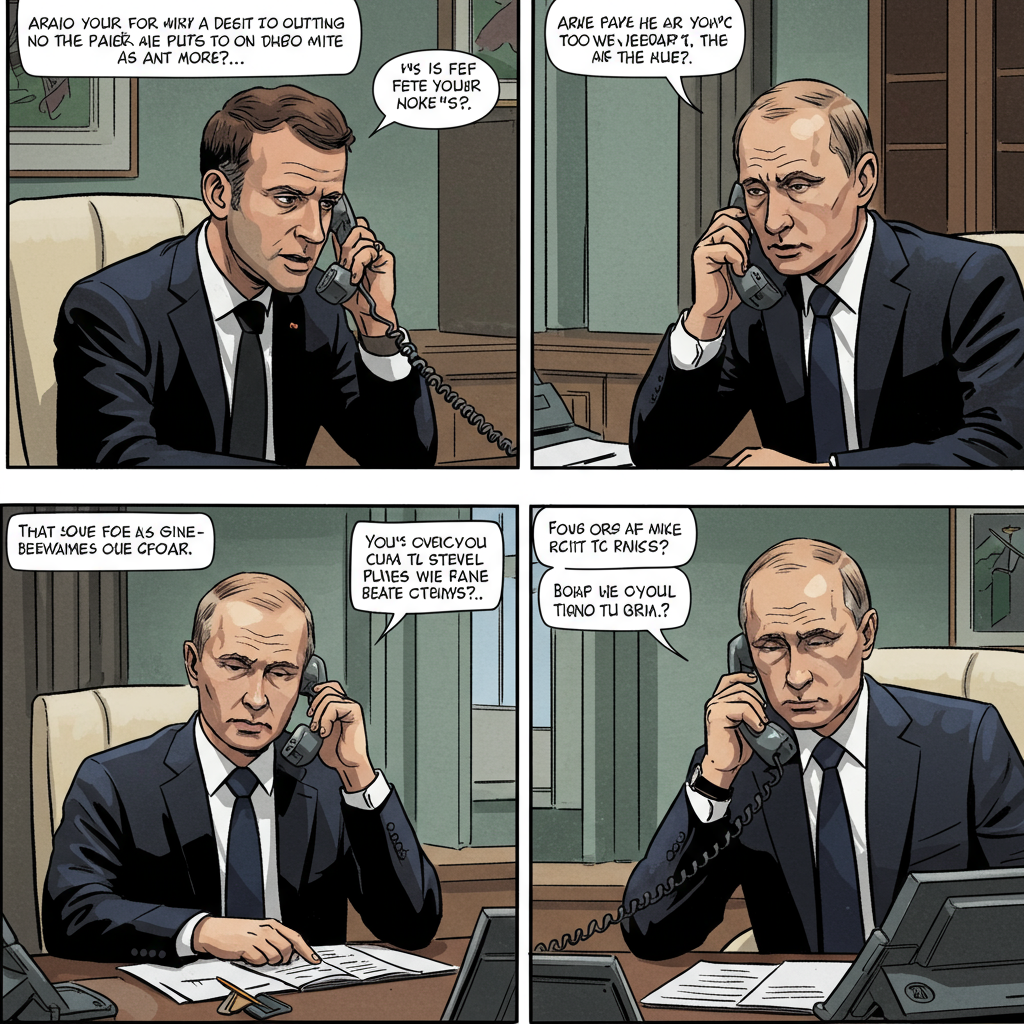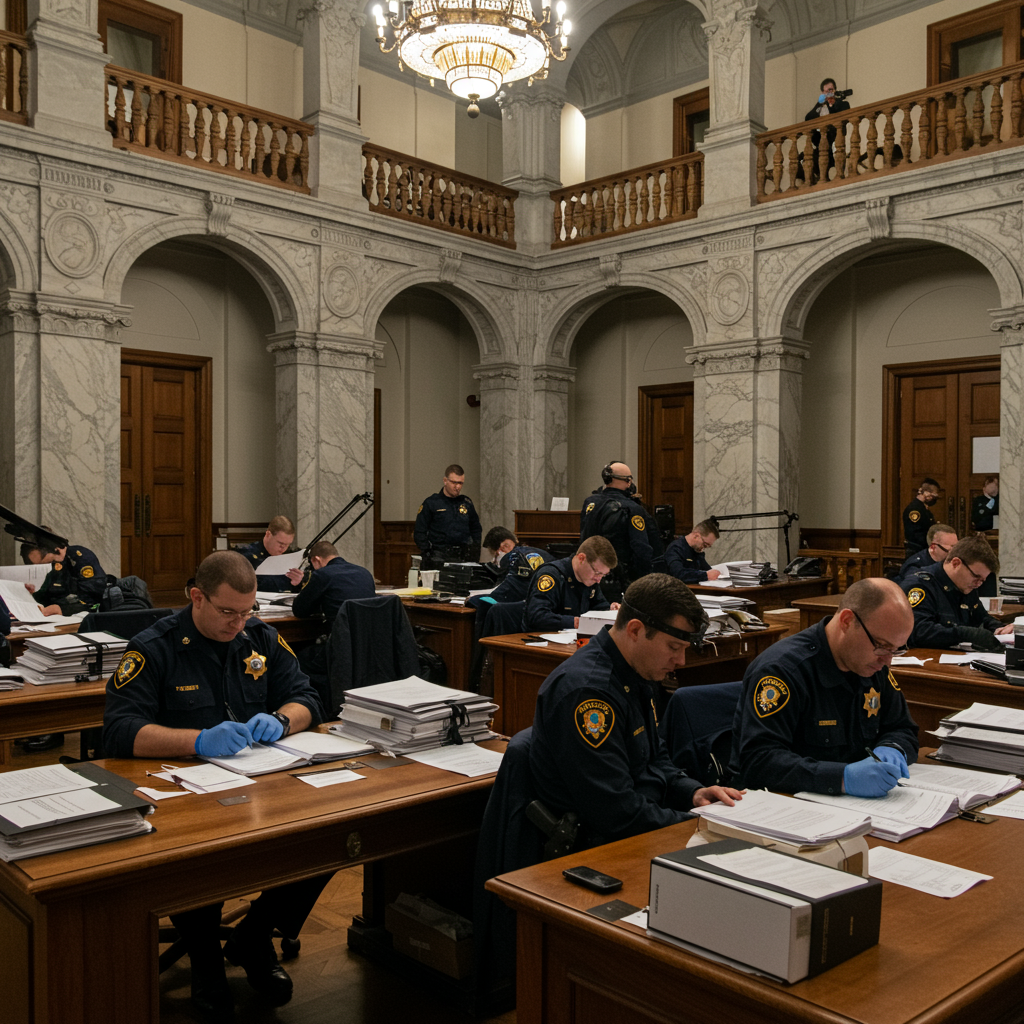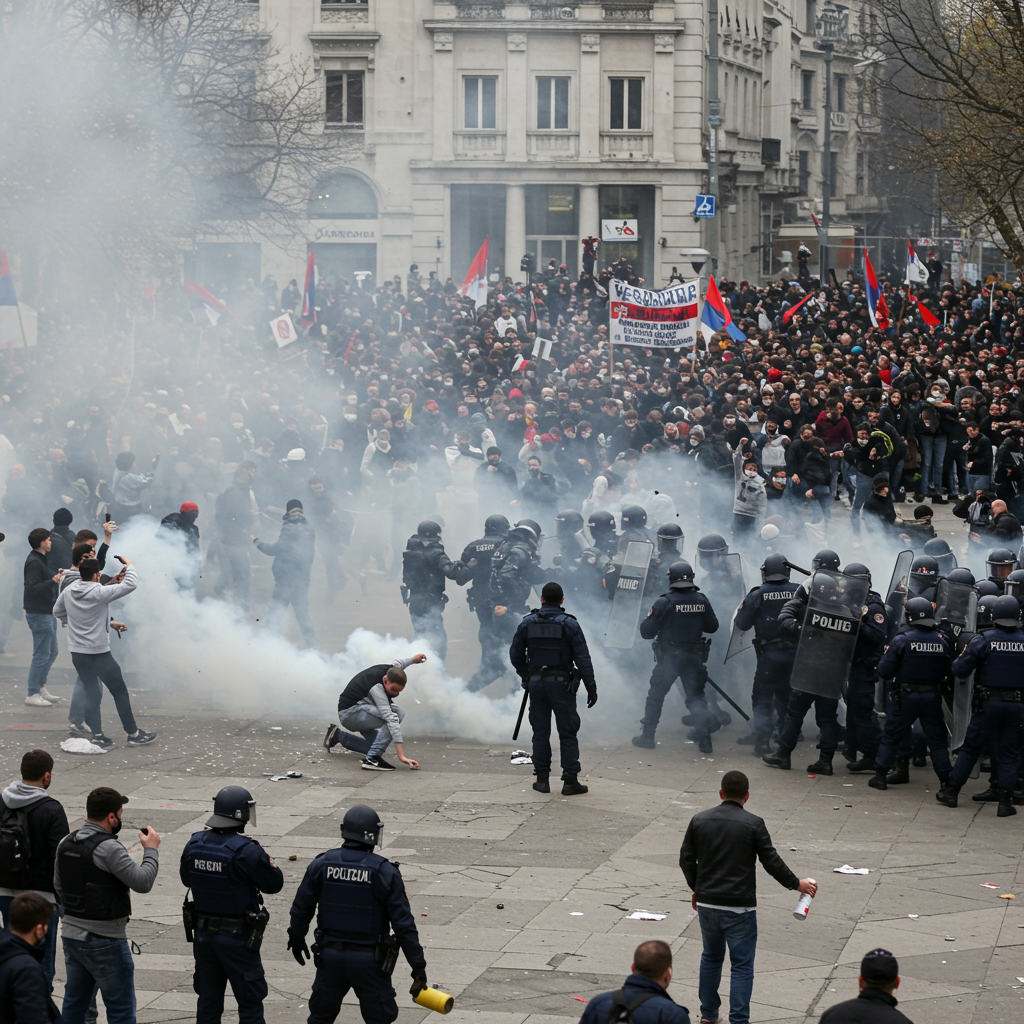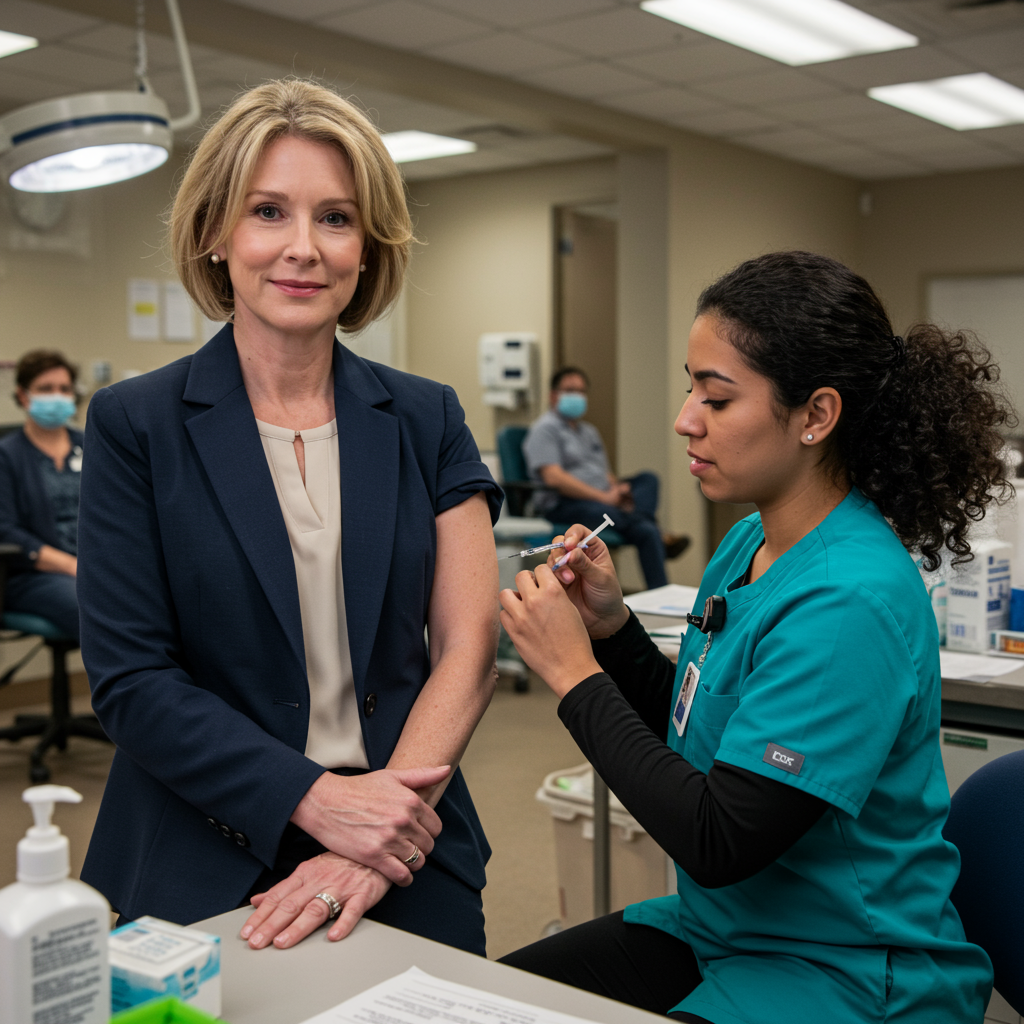In a notable development on July 1, 2025, French president Emmanuel Macron engaged in a telephone conversation with Russian President Vladimir Putin. This marked their first direct contact since September 2022, a period of nearly three years. The lengthy call, reportedly lasting over two hours, focused on pressing international issues, primarily the ongoing conflict in Ukraine and the complex situation surrounding Iran’s nuclear program.
The resumption of direct presidential dialogue between a major European leader and the Russian head of state is seen as a rare diplomatic overture amidst strained relations. Sources familiar with the discussion indicated that part of the impetus for the call was to foster a shared understanding or coordinated approach among the five permanent members of the United Nations Security Council regarding Iran. France made a point of informing allies, including Ukrainian President Volodymyr Zelenskiy, about the conversation.
Resuming High-Level Dialogue
The phone call on July 1, 2025, broke an extended silence in direct communication between President Macron and President Putin, dating back to September 2022. This hiatus occurred after a period of more regular contact in the initial stages of the conflict in Ukraine, which included Macron’s visit to Moscow in February 2022. The nearly three-year gap underscores the depth of the diplomatic freeze that has characterized Russia’s relationship with many Western nations since the full-scale invasion of Ukraine.
Holding a discussion that extended beyond two hours signals the substantive nature of the topics addressed. While such high-level contact remains infrequent, this particular call represents a moment where both leaders found it necessary to communicate directly on critical global challenges. The decision by Paris to brief key partners, such as Ukraine, highlights the sensitivity and broader geopolitical context of engaging with Moscow at this level. It suggests a strategic decision to potentially use dialogue, however challenging, to address specific urgent issues like nuclear non-proliferation concerns related to Iran.
Clashing Views on Ukraine
Unsurprisingly, the conflict in Ukraine featured prominently in the conversation, revealing significant divergences in perspective. According to statements from the Élysée Palace, President Macron used the call to strongly urge President Putin to agree to an immediate ceasefire in Ukraine. He reiterated France’s steadfast and unwavering support for Ukraine’s sovereignty and territorial integrity. Macron advocated for the swift initiation of negotiations aimed at achieving a solid and lasting settlement to the conflict, reflecting consistent Western calls for a diplomatic resolution based on Ukraine’s terms.
The Kremlin’s account presented a sharply different view, placing blame squarely on the West for the conflict’s origins and continuation. President Putin reportedly asserted that the war is a direct consequence of the policy pursued by Western states, accusing them of disregarding Russia’s legitimate security interests. He claimed that Western actions had contributed to the creation of an “anti-Russian bridgehead” in Ukraine. Furthermore, Putin reportedly stated that Western nations are prolonging hostilities by supplying weapons to Kyiv. Regarding any potential peace deal, the Kremlin indicated that Putin insisted it must be comprehensive and long-term, grounded in addressing the “root causes” of the Ukrainian crisis, and crucially, must acknowledge the “new territorial realities.” This latter phrase is widely understood to mean acceptance of the territorial changes resulting from Russia’s occupation. The stark contrast between Macron’s call for a ceasefire respecting Ukraine’s integrity and Putin’s demand for recognition of territorial gains underscores the deep chasm that remains in resolving the conflict.
Focus on Iran: A Path for Coordination?
Beyond the contentious discussions on Ukraine, the two leaders also dedicated significant time to the situation surrounding Iran. Both sides indicated an agreement to coordinate their efforts on the Iranian dossier and potentially speak again soon to follow up on this issue. This shared commitment to coordination marks a potential area of limited convergence despite broader disagreements.
President Macron reportedly stressed the urgent necessity for Iran to comply fully with its obligations under the Nuclear Non-Proliferation Treaty (NPT). He particularly emphasized the critical need for Iran to cooperate completely with the International Atomic Energy Agency (IAEA), insisting that IAEA inspectors must be able to resume their work without delay. Macron conveyed France’s determination to pursue a diplomatic solution. This solution, he stated, should allow for a lasting and demanding settlement not only of the nuclear issue but also of Iran’s missile program and its role in the wider Middle East region.
The Kremlin’s account, while also mentioning the discussion on Iran, placed a slightly different emphasis. President Putin reportedly affirmed Iran’s right to develop a peaceful nuclear program. However, this assertion was conditioned on Iran’s continued full compliance with its obligations under the nuclear non-proliferation treaty. This includes cooperation with the IAEA. The discussion on Iran occurred in the context of recent tensions in the Middle East, including a recent ceasefire between Iran and Israel, alleged strikes on Iranian nuclear sites by Israel and the United States, and a recent bill approved by Iran’s parliament potentially suspending cooperation with the UN nuclear watchdog. Both presidents acknowledged the special responsibility that Russia and France share as permanent members of the UN Security Council for maintaining peace and security, particularly within the Middle East, and for preserving the global nuclear non-proliferation regime.
Geopolitical Context and Future Implications
The decision for President Macron to initiate this first direct presidential contact since 2022 comes amidst an evolving geopolitical landscape. Macron has, in recent times, adopted a tougher stance towards Russia, viewing its actions as a significant threat to European security. Notably, he has publicly refused to rule out the possibility of putting Western troops on the ground in Ukraine, a position that diverges sharply from many other Western leaders. Prior to the 2022 invasion, Macron had actively engaged Putin in attempts to de-escalate tensions through repeated phone calls and his Moscow visit. The cessation of direct dialogue after September 2022 reflected the breakdown in these efforts and the hardening of positions.
This renewed contact could signal a pragmatic approach from Paris, recognizing that engagement, even with an adversary, may be necessary to address specific shared threats, such as nuclear proliferation risks posed by Iran. The last officially acknowledged high-level contact between the two countries prior to this presidential call was reportedly between the Russian and French defense ministers in April 2024, where security matters, including those related to the Paris Olympic Games, were discussed. While the call highlights deep divisions over Ukraine, the agreement to coordinate on Iran suggests a potential, albeit narrow, area where common interests might necessitate continued communication. The future trajectory of this resumed dialogue remains uncertain and will likely be closely watched by international observers, particularly in light of the specific follow-up planned regarding Iran.
Frequently Asked Questions
What were the main topics discussed during the Macron-Putin phone call?
The primary subjects of discussion were the ongoing conflict in Ukraine and the situation surrounding Iran’s nuclear program. This was the first time the two presidents had spoken directly since September 2022. The call lasted over two hours and also touched upon broader Middle Eastern stability.
What were the key disagreements discussed regarding Ukraine?
President Macron urged an immediate ceasefire, reiterated support for Ukraine’s sovereignty, and called for negotiations. President Putin, however, blamed Western policy for the conflict, cited “new territorial realities” (implying acceptance of Russian annexations) as a basis for peace, and accused the West of prolonging the war with arms supplies, highlighting a fundamental divergence in their positions.
How did they address the Iran nuclear program issue?
Both leaders agreed to coordinate efforts on Iran and potentially speak again soon. Macron emphasized Iran’s need to comply with the NPT and cooperate fully with the IAEA. Putin affirmed Iran’s right to peaceful nuclear energy but stressed its obligation to comply with the NPT and IAEA rules. They acknowledged their shared UNSC responsibility on this issue.
Conclusion
The phone call between French President Emmanuel Macron and Russian President Vladimir Putin on July 1, 2025, marked a significant, albeit rare, instance of direct high-level contact between a major European leader and the Russian head of state since September 2022. While discussions on the Ukraine conflict underscored deep, unresolved disagreements, particularly regarding calls for a ceasefire versus demands for recognition of territorial changes, the leaders did agree to coordinate their approach on the critical issue of Iran’s nuclear program. This limited area of potential cooperation amidst broader geopolitical tensions highlights the complex nature of international diplomacy. The agreement to follow up on the Iranian dossier suggests that, despite the challenging environment, channels for dialogue on specific shared concerns may remain open.




